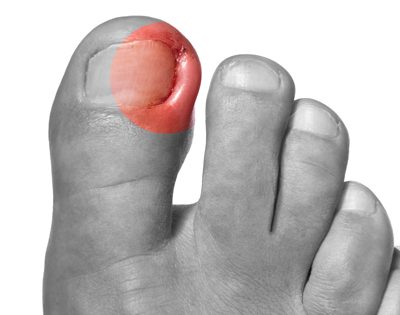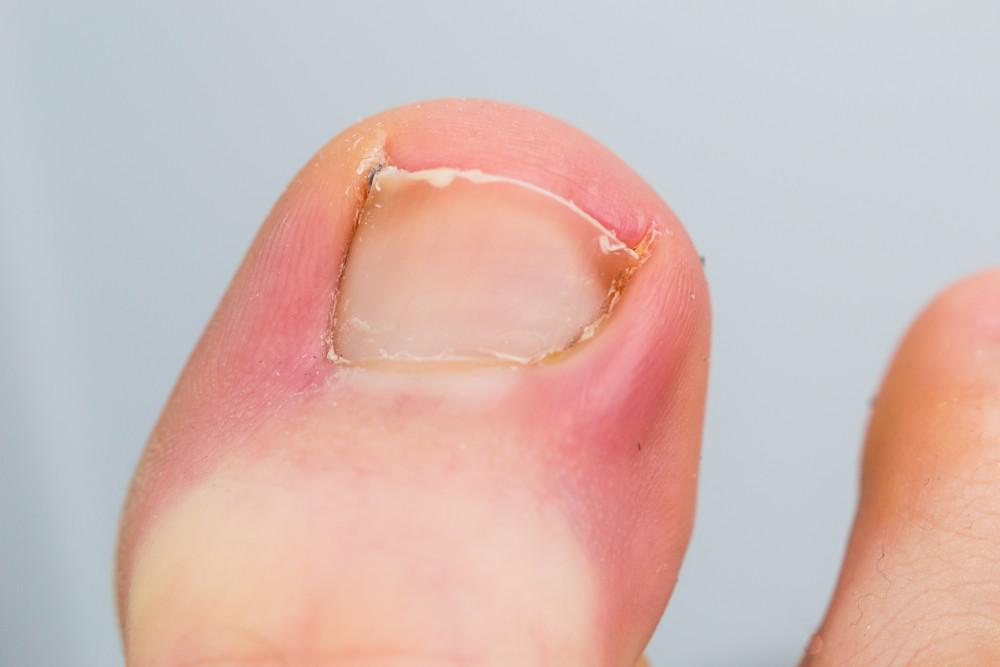Ingrown Toenails Overview

If you have diabetes, vascular disease, or numbness in the toes, you need special care to prevent ingrown toenails. While this condition is not life-threatening, it should not be ignored. If left untreated, it can become more serious and lead to gangrene. If it continues to get worse, you should seek medical advice. This article will provide you with a comprehensive ingrown toenail overview.
There are many different causes of ingrown toenails. Some of them are congenital, but they can also be caused by trauma, improper nail trimming, and tight shoe wear. In older adults, it can occur due to increased pressure on the toenail, the thicker it is, and the lower blood circulation. As a result, the edge of the toenail presses into the skin, causing an ingrown toenail. This condition causes inflammation, pus, and inflammation.
An ingrown toenail can be treated by using dry cotton to reduce pressure. You can also use a bandage or dental floss to prevent infection. A physician can recommend an antibiotic cream to treat an ingrown toenail. However, you should only see a doctor if the symptoms persist and you are unsure whether or not you need surgery. If you’ve tried home remedies and they’re not working, you should consult a doctor. A surgical ingrown toenail is not recommended unless you’ve already tried the above methods.
An ingrown toenail can be caused by many different causes, including wearing shoes that are too small or too tight, or by repetitive pressure on the toe. The most common cause of an ingrown toenail is improper nail trimming, which encourages the skin to fold over the nail. Other causes include excessive pressure on the toes, poor footwear fit, and fungus infection. If the condition isn’t treated, surgery may be necessary.
Ingrown toenails can be treated at home using antifungal agents. You can also use home remedies such as apple cider vinegar, olive oil, tea tree oil, or tea tree oil. There are many other natural remedies for ingrown toenails. If you’re suffering from a severe case, you’ll need to consult a doctor immediately. Fortunately, many of them are effective. Some even require no treatment at all.
If the ingrown toenail is severe, you should see a doctor. There are home remedies you can use that can relieve the pain and discomfort of ingrown toenails. An apple cider vinegar soak in olive oil will help prevent the infection. Some people can also treat the condition with olive oil, apple cider vinegar, or tea tree oil. Those who have ingrown toenails need to have them treated with antifungal agents, but if it’s worse than that, they should consider surgical intervention.

If you’ve tried home remedies and found that they don’t work, you should visit a doctor to rule out the possibility of a more serious condition. The best thing to do is avoid wearing tight shoes and socks and wearing socks that fit well. Choosing shoes with good support and space is also important, as it can prevent an ingrown toenail from forming. If your condition is severe, you should consult a doctor for medical help.
The best way to prevent an ingrown toenail is to wear comfortable socks and shoes. If you wear thick socks and shoes, they can cause discomfort and granuloma. An antifungal agent such as apple cider vinegar will help you treat the infection and prevent it from spreading to other parts of your foot. A steel-toed boot will help protect your toes from infections.
While the symptoms of ingrown toenails can be treated at home, it’s important to see a doctor if they can’t fix the problem. Various home remedies for ingrown toenails can relieve pain and reduce inflammation, but you should seek advice from the site https://simbolospatrios.mx/
if your symptoms persist or worsen. In some cases, surgery is required to treat an ingrown toenail. You may be able to find a doctor near you if you can apply some of these remedies.
If you suspect that you have an infection, you can use antifungal medicines or antibiotics to treat the infection. In some cases, ingrown toenails can become infected with a fungal infection or an underlying medical condition. To prevent an ingrown toenail from spreading, always trim your toenails straight across. You can also try removing the nail if you’re experiencing extreme pain or discomfort.
